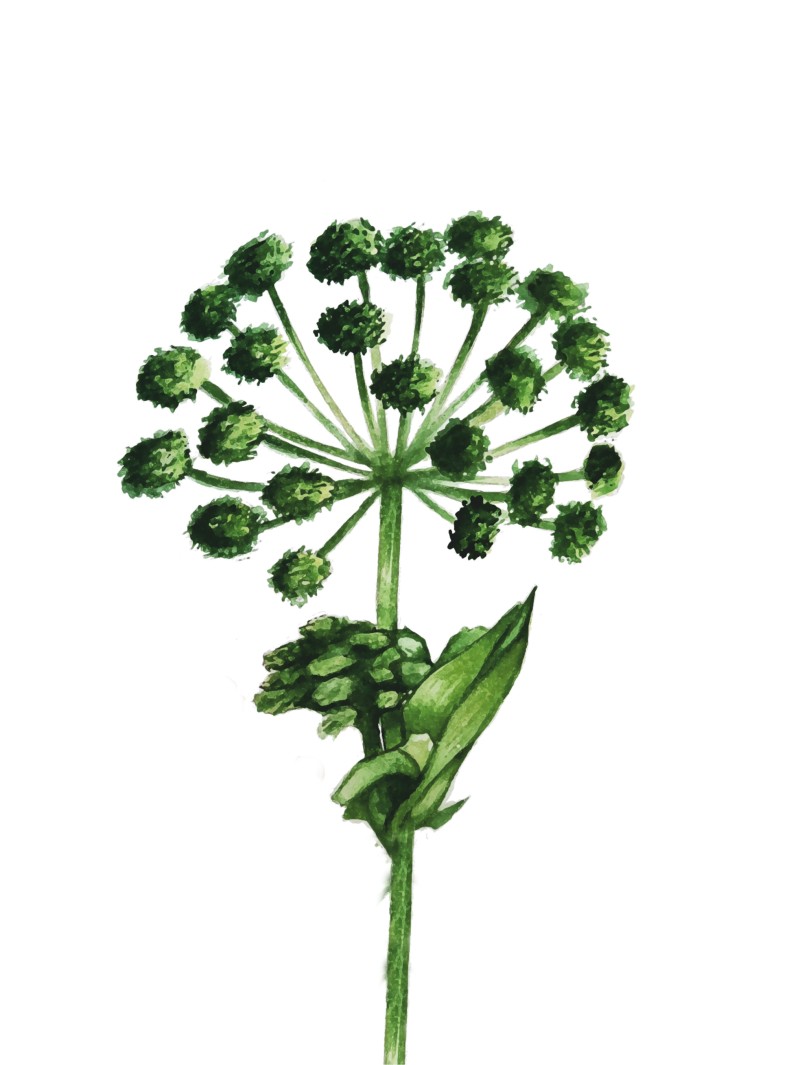
Angelica (Angelica archangelica or Angelica officinalis) is a perennial herbaceous plant that belongs to the Umbelliferae family.
The Latin name comes from the Greek αγγελος (Angelos) - messenger and is named after Archangel Michael. It is explained that it was Archangel Michael who appeared and explained the magical powers of the plant.
Angelica has an old meaning and an unclear origin. This herb is present in several legends. One of these is associated with Archangel Michael, who brought this herb to earth decades ago during the plague epidemic. During this time, thanks to it, the lives of many people were saved, and this is how the healing plant was given the name "angel herb". There is also another theory that the name "angelica" may have come about precisely because of its appearance - delicate flowers gathered in an intricate inflorescence that resembles a majestic halo.
Angelica was considered a sacred herb by the Scandinavian peoples, which has "angelic powers" to combat gastrointestinal problems. A flute-like musical instrument is also made from its stem. Nordic people add it to reindeer milk as a flavor. Another interesting fact is that its beautiful stems are candied and used for decorative purposes.
In the Middle Ages, a liquid extract was made from angelica, which the knights dripped into their eyes and ears and it was believed to improve eyesight and hearing. Throughout North America, Native Americans use many types of angelica as food, medicinal, and intoxicating herb for smoking in rituals. In Chinese medicine, angelica is considered the "female" equivalent of ginseng because of its ability to harmonize the female body. It is believed to prolong youth and restore a good flow of energy along the meridians.
Angelica herb is considered a panacea for a number of health problems and has long been known for its ectogenic, antispasmodic, and beneficial properties.
The unique root system of this plant allows it to retain moisture in such a way that Angelica can grow up to a meter tall in just two weeks.
A whole range of cosmetics has been created on the basis of angelica root extract. It supplies the cells of the human body with more moisture and thus stimulates the production of elastane and collagen, which are responsible for maintaining the elasticity of the skin.
All parts of the angelica - stems, seeds, roots are used for cooking and as an herb. The stems are used in confectionery and the seeds are added to soups and creams for their pleasant musky aroma.